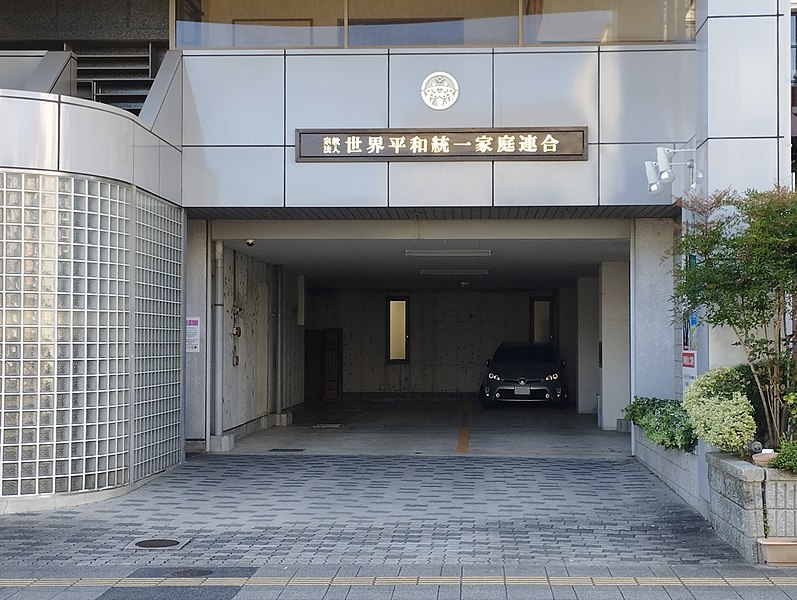Authorities in Japan have begun an investigation into the controversial Unification Church this week. The probe could threaten the church’s legal status, as the country is still reeling from the assassination of former Prime Minister Shinzo Abe and the revelation of the governing party’s ties with the church.
The Japanese government launched a probe into the Unification Church Tuesday, following the public outrage that came from the assassination of Abe. Abe’s assassination also revealed the ties between members of the governing Liberal Democratic Party and the church. Culture minister Keiko Nagaoka told a news conference that the government has given the Unification Church until December 9 to answer questions about its finances and organization.
Following the inquiry, the ministry will determine whether to seek a court order that could potentially revoke the church’s legal standing, which could take several months and may be followed by a lengthy legal battle. The spokesperson for the Japan chapter of the church said that it expects to receive the first set of questions from the government on Wednesday and will cooperate with the probe.
The scrutiny of the government and the church follows the assassination of Abe back in July. The gunman, Tetsuya Yamagami, blamed the church for sending his mother into bankruptcy and said that Abe, who appeared in events sponsored by the church-affiliated groups, promoted the organization.
With the probe, the Unification Church, founded in South Korea in 1954, relies on its Japanese followers to be a source of income, and the investigation could offer a major financial blow that would affect its tax exemption status as well as its property holdings.
Friday last week, a district court in Japan ruled to reduce the length of the psychiatric evaluation of Yamagami, reversing the previous decision, according to the Kyodo news agency. The local court previously granted the request by prosecutors to continue Yamagami’s psychiatric evaluation until February 6, a three-month extension from the initial end date of November 29.
Yamagami’s attorneys appealed against the extension, arguing that an extension of three more months would be too long “and is illegal given that it is neither necessary nor reasonable,” according to the report. The district court in Nara ruled to end the evaluation on January 10.



 Federal Judge Restores Funding for Gateway Rail Tunnel Project
Federal Judge Restores Funding for Gateway Rail Tunnel Project  Trump Rejects Putin’s New START Extension Offer, Raising Fears of a New Nuclear Arms Race
Trump Rejects Putin’s New START Extension Offer, Raising Fears of a New Nuclear Arms Race  U.S. Lawmakers to Review Unredacted Jeffrey Epstein DOJ Files Starting Monday
U.S. Lawmakers to Review Unredacted Jeffrey Epstein DOJ Files Starting Monday  Trump Signs “America First Arms Transfer Strategy” to Prioritize U.S. Weapons Sales
Trump Signs “America First Arms Transfer Strategy” to Prioritize U.S. Weapons Sales  Pentagon Ends Military Education Programs With Harvard University
Pentagon Ends Military Education Programs With Harvard University  Nighttime Shelling Causes Serious Damage in Russia’s Belgorod Region Near Ukraine Border
Nighttime Shelling Causes Serious Damage in Russia’s Belgorod Region Near Ukraine Border  U.S.-India Trade Framework Signals Major Shift in Tariffs, Energy, and Supply Chains
U.S.-India Trade Framework Signals Major Shift in Tariffs, Energy, and Supply Chains  South Korea Assures U.S. on Trade Deal Commitments Amid Tariff Concerns
South Korea Assures U.S. on Trade Deal Commitments Amid Tariff Concerns  Trump Says “Very Good Talks” Underway on Russia-Ukraine War as Peace Efforts Continue
Trump Says “Very Good Talks” Underway on Russia-Ukraine War as Peace Efforts Continue  Trump Lifts 25% Tariff on Indian Goods in Strategic U.S.–India Trade and Energy Deal
Trump Lifts 25% Tariff on Indian Goods in Strategic U.S.–India Trade and Energy Deal  Ukraine-Russia Talks Yield Major POW Swap as U.S. Pushes for Path to Peace
Ukraine-Russia Talks Yield Major POW Swap as U.S. Pushes for Path to Peace  Missouri Judge Dismisses Lawsuit Challenging Starbucks’ Diversity and Inclusion Policies
Missouri Judge Dismisses Lawsuit Challenging Starbucks’ Diversity and Inclusion Policies  Newly Released DOJ Epstein Files Expose High-Profile Connections Across Politics and Business
Newly Released DOJ Epstein Files Expose High-Profile Connections Across Politics and Business  Ohio Man Indicted for Alleged Threat Against Vice President JD Vance, Faces Additional Federal Charges
Ohio Man Indicted for Alleged Threat Against Vice President JD Vance, Faces Additional Federal Charges  Trump Signs Executive Order Threatening 25% Tariffs on Countries Trading With Iran
Trump Signs Executive Order Threatening 25% Tariffs on Countries Trading With Iran  TrumpRx.gov Highlights GLP-1 Drug Discounts but Offers Limited Savings for Most Americans
TrumpRx.gov Highlights GLP-1 Drug Discounts but Offers Limited Savings for Most Americans  NATO to Discuss Strengthening Greenland Security Amid Arctic Tensions
NATO to Discuss Strengthening Greenland Security Amid Arctic Tensions 





























